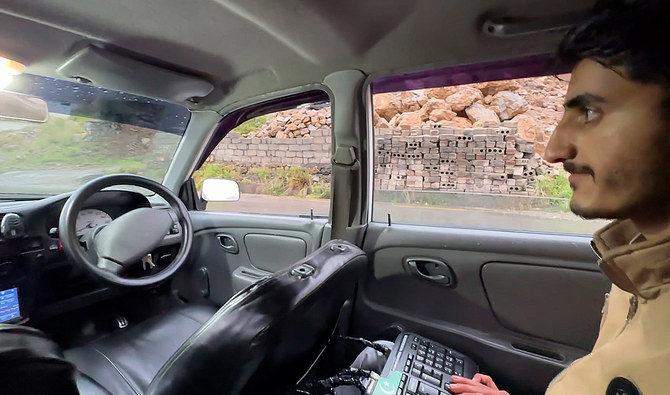KARACHI: A woman who has been appointed the chief of her tribe in the southern Sindh province, a first for Pakistan, called it a “huge honour” and said she had the backing of her family and community members in running the affairs of the clan.
The Soho tribe is spread across Sindh but dominates the Mirpur Bathoro area of the Sujawal coastal district. It's chieftain, Muhammad Ismail Soho, died of the coronavirus in February. His clan subsequently chose his daughter Heer Ismail Soho, a lawmaker at the provincial assembly of Sindh, as its new chief.
Sindh, where tribalism is rampant, does not have a tradition of women being appointed chiefs of clans. On the contrary, women education and employment rates are low. According to a survey by the Sindh-based Sindh Suhai Sath rights advocacy group, 128 women were killed in the province in 2021 in incidents of honour killing, in which family members believe they are restoring their honour by killing women who have eloped or had an unsanctioned relationship outside marriage.
“This is a huge honour for me but a big challenge as well as I will need to resolve the issues of my community, which lives in the coastal belt mostly and is faced with many problems,” Soho told Arab News in a telephone interview, calling her appointment a “revolution.”
Outlining some of the main problems of her community, she said her top priorities were the provision of drinking and agriculture water and opening of schools.
Soho’s uncle Ghulam Rasool Soho said the decision to choose a woman as the tribal chief was taken because of Soho's leadership qualities and as an attempt to change rigid mindsets in the region.
“Heer is chosen because she is politically active and can better lead and guide the tribe,” Ghulam said. “While a man can lead a tribe, a woman can lead and guide her people in a much better manner.”

Heer Ismail Soho, a lawmaker at the provincial assembly of Sindh, gestures during a talkshow in Karachi, Pakistan, on January 19, 2022. (@HeerSoho/Twitter)
He said the decision was taken before the death of his brother and had the backing of the tribe’s spiritual leader, Hafiz Ghulam Muhammad Soho, a top cleric in the province who holds massive influence over tribesmen as well in the area's social, political and religious circles.
“My elder brother, Muhammad Ismail Soho, who was the sardar (chief) of the tribe, consulted us brothers before his death and it was our consensus decision to appoint my niece Heer Ismail Soho as the head of the tribe,” Ghulam Rasool said.
Heer will formally assume the title at a condolence reference for her father scheduled to be held after the Eid holiday in May, her uncle said, adding that she would wear the traditional turban, worn by tribal leaders.
Ghulam Rasool said the decision to make Heer the chieftain was also important in the context of the Sindh province, where women were frequently killed for so-called honour and not given their due rights.
“The selection of a woman as the tribe’s head in Sindh is a blessing and it will set a brilliant tradition for others and change the mindsets,” he said. “Our society and our country will start progressing once we start giving leadership roles to competent woman.”
Heer, an active political figure, was first elected as a member of the provincial assembly from the Muttahida Qaumi Movement (MQM) party in 2002. She unsuccessfully contested for the national and provincial assemblies in 2008 and 2013 respectively.
In 2018, Heer quit the MQM and joined the Pakistan Peoples Party (PPP), which rules the province, and was nominated as a member of the Sindh Assembly on a seat reserved for women.


















